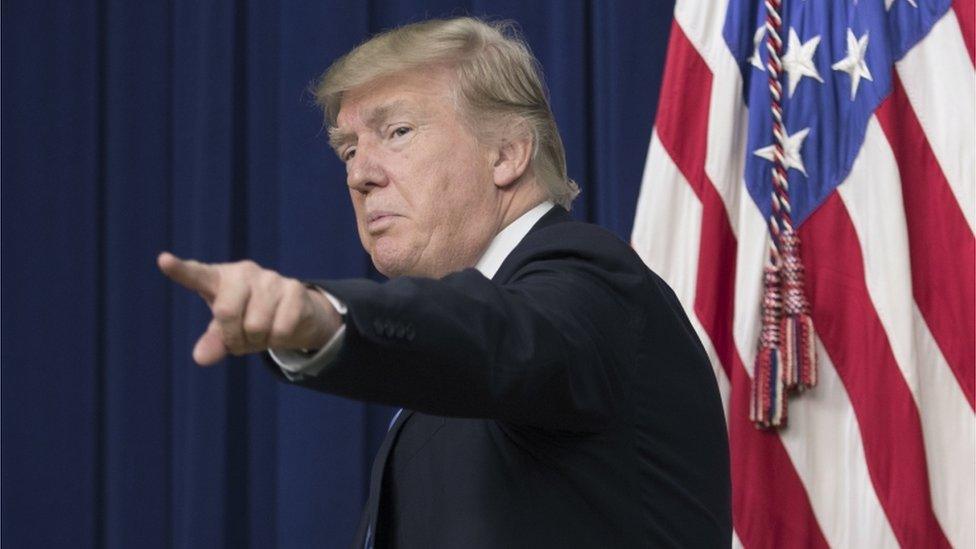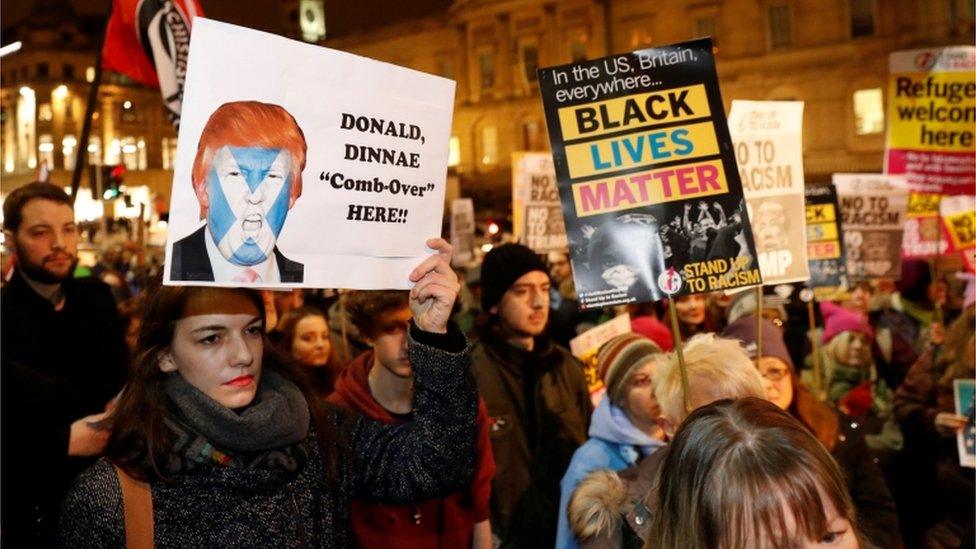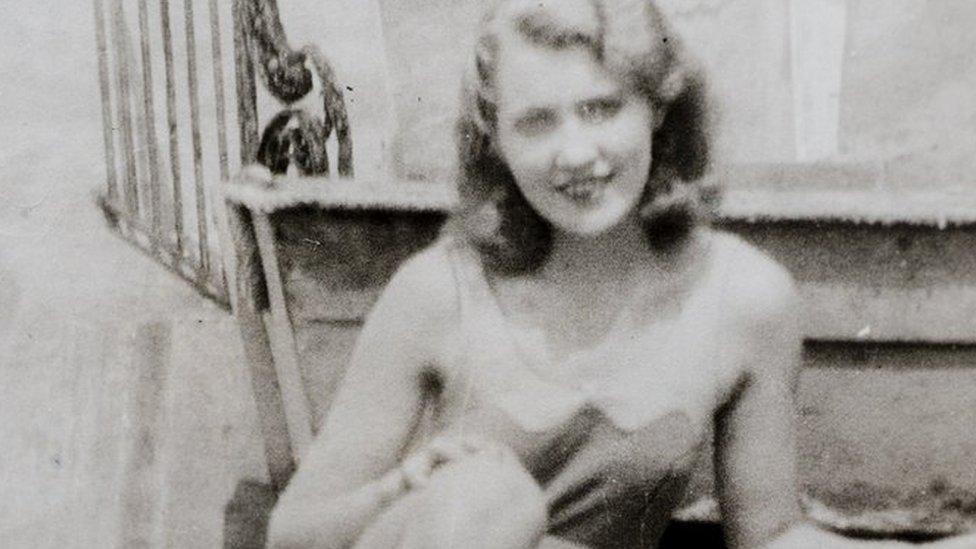Nicola Sturgeon 'would agree to meet Trump'
- Published

Donald Trump has Scottish roots, with his mother being born on the Isle of Lewis
Nicola Sturgeon has said she would agree to meet President Donald Trump if he was to come to Scotland during his official visit to the UK.
The Scottish first minister has been a vocal critic of Mr Trump both before and after his victory in last year's election.
Ms Sturgeon will not meet any members of Mr Trump's administration during her current trip to the US.
But she said she would not decline any invitation to meet him in Scotland.
The first minister, who was speaking after an event at Stanford University in California, said she had not made a deliberate attempt to avoid Mr Trump or his team during her five-day tour of the United States.
'Business focused'
Ms Sturgeon told the Press Association: "This trip has been principally business-focused so we're not going to Washington on this occasion.
"I fully expect, during his presidency, President Trump will come to the UK and come to Scotland.
"As first minister of Scotland, I'm not going to decline to meet him."
Ms Sturgeon gave a speech at Stanford University on Tuesday
Mr Trump, whose corporation owns two major Scottish golf resorts, is widely expected to make a state visit to the UK later this year.
The president's mother came from the Isle of Lewis in the Western Isles and he has often emphasised his Scottish ancestry.
But Ms Sturgeon stripped him of his role as a business ambassador for Scotland in 2015 after he proposed a ban on Muslims entering the United States.
She told the Scottish Parliament in November that she stood by her previous criticisms of Mr Trump, and pledged not to maintain a "diplomatic silence" in the face of any racism, misogyny or intolerance from the president.
The two political leaders spoke by telephone in December, when Ms Sturgeon congratulated him on his victory in the presidential election.
Ms Sturgeon - who backed Hillary Clinton ahead of the presidential election - also discussed the "longstanding relationship between Scotland and the United States" with Mr Trump.
The first minister's speech at Stanford University made no mention of Mr Trump, with the first minister focusing on the global role she believes Scotland would be able to play if it were to become independent.
She also urged the UK government to recognise the "right" of Scots to decide their own future through another independence referendum.
The UK government has already declined Ms Sturgeon's request to be given the powers to hold a legally-binding independence referendum before the Brexit process is complete.
It has argued that the focus should instead be on getting the best deal for the whole of the UK in the forthcoming negotiations with the EU - with the prime minister repeatedly saying "now is not the time" for another vote on independence.
But Ms Sturgeon said that position was "not sustainable" and insisted she was "fairly certain" there would be another referendum.

Protests were held in Scottish cities when Mr Trump was inaugurated as president
While the legislation that created the Scottish Parliament reserved powers over constitutional issues to the UK, Ms Sturgeon argued that it was "quite a vague term" and said the issue had never been tested in court.
Scottish Liberal Democrat leader Willie Rennie said he had written to the first minister asking whether these comments suggested she was planning to mount a legal challenge as part of what he described as a "war of attrition over independence".
Meanwhile, John Lamont of the Scottish Conservatives said it was a "great shame" that Ms Sturgeon has "chosen to use her taxpayer-funded trip to America to promote independence, and an unwanted referendum."
He added: "She may be representing the SNP in doing so - but she does not represent mainstream Scottish opinion."
Scottish Labour's James Kelly said Ms Sturgeon should use foreign trips to represent the interests of all the people of Scotland, rather than "trying to build up support for a second referendum that the majority here don't want".
Ms Sturgeon - who insists her visit to the US is focused on trade rather than independence, will be in New York on Wednesday for a series of meetings at the UN.
She is also due to give a speech on peace building, as the United Nations considers its response to the gas attack in Syria.
